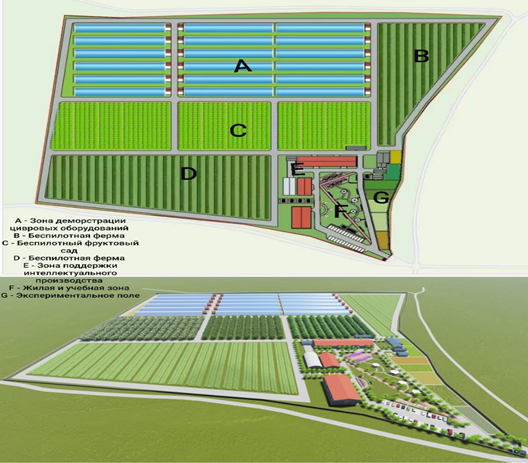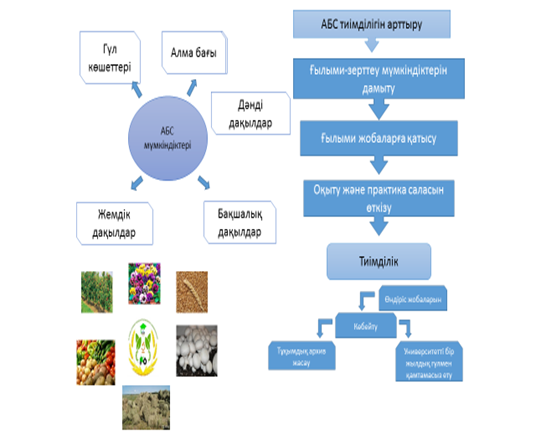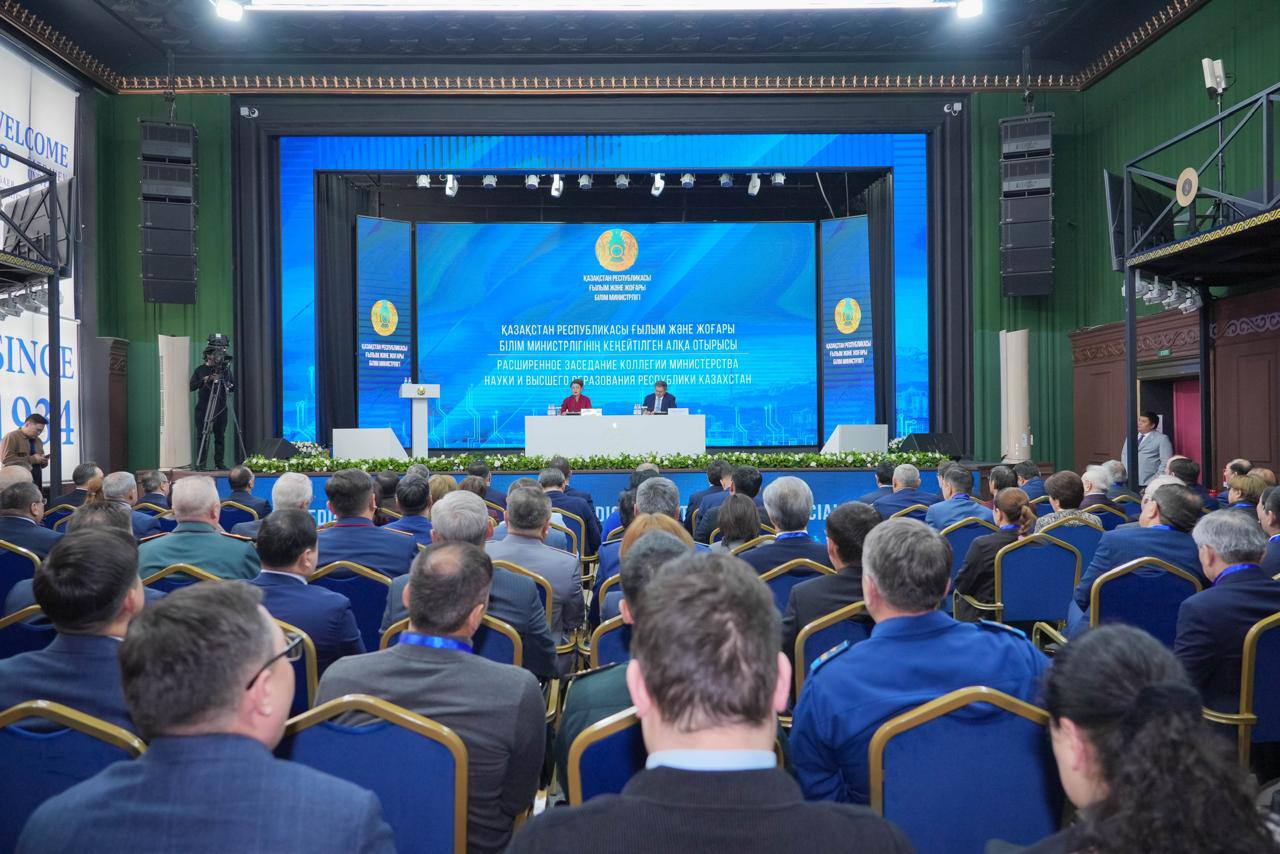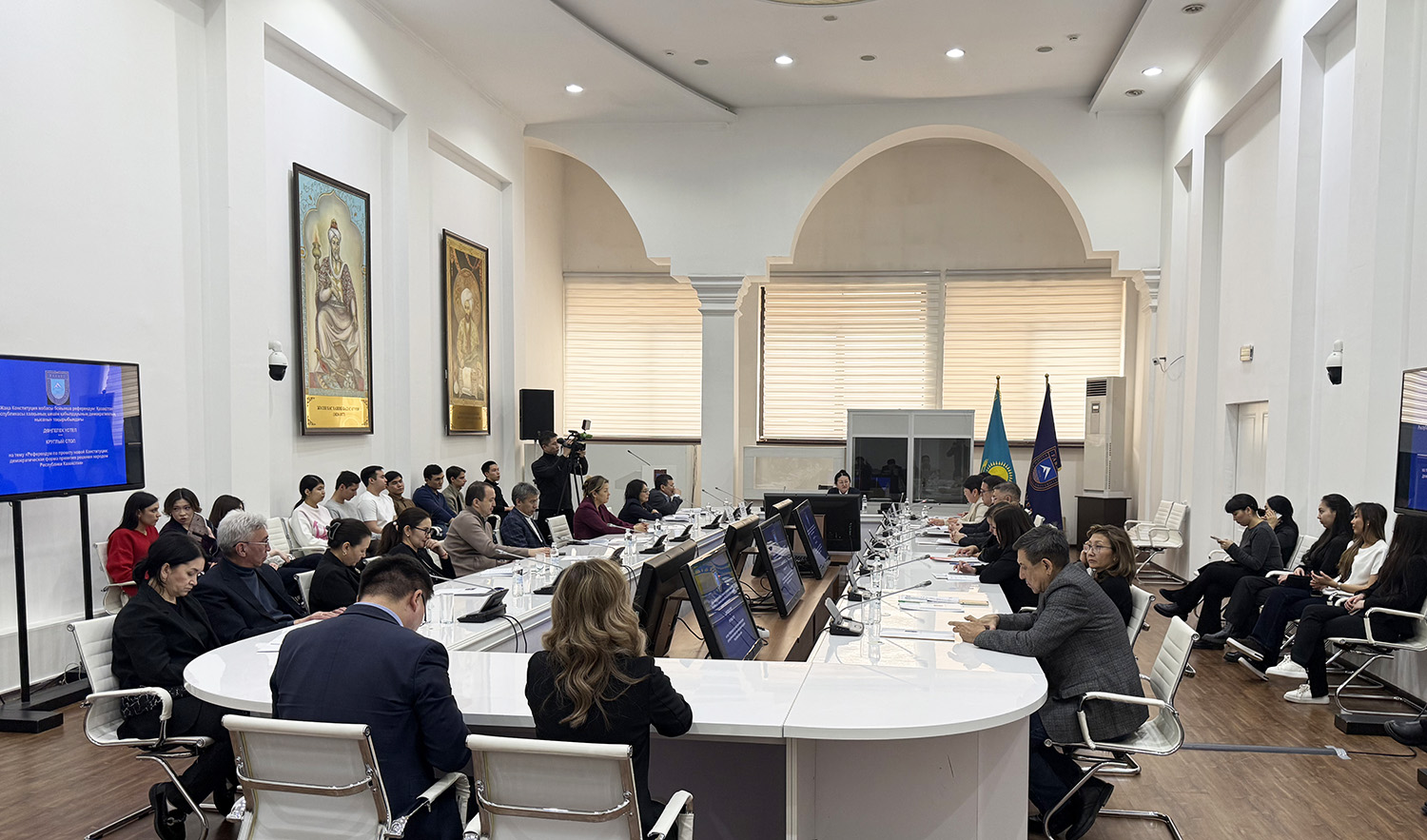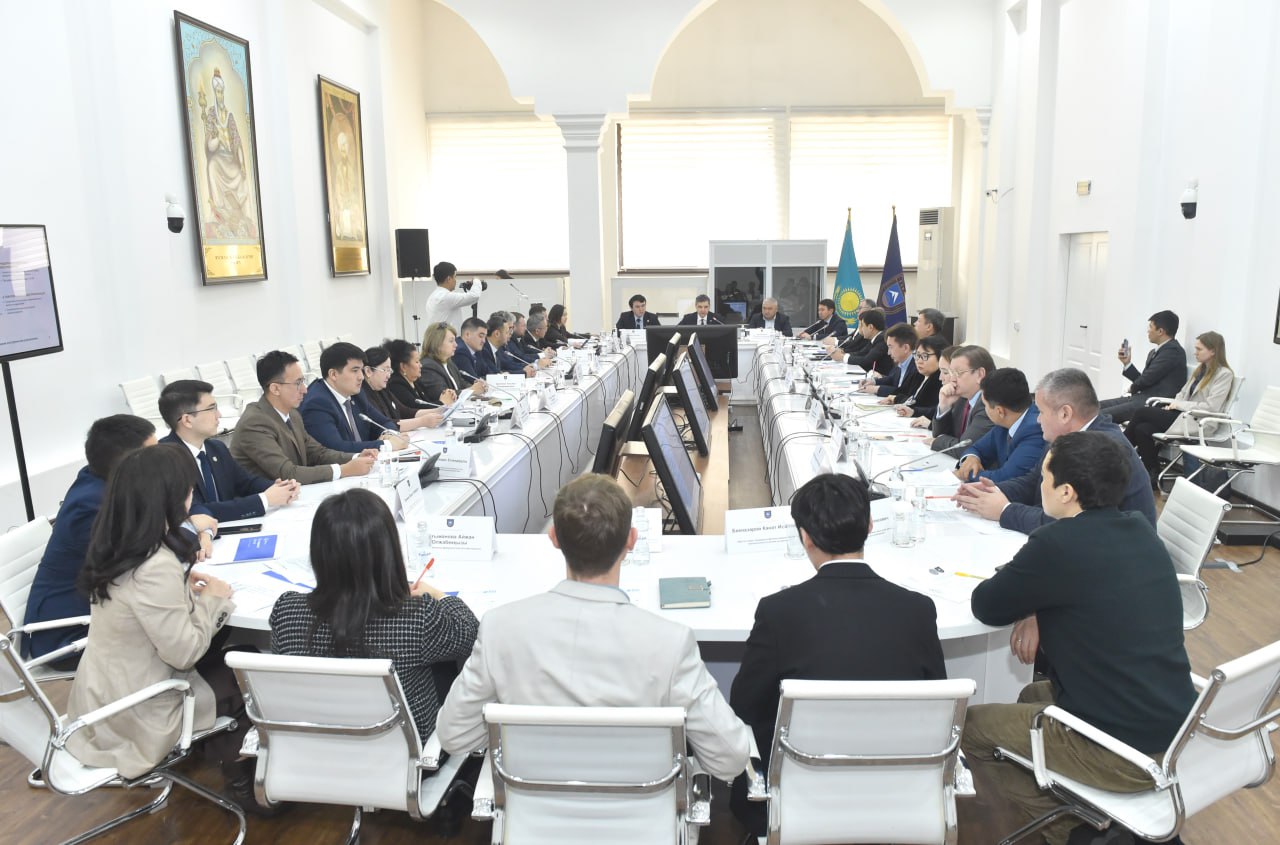Training Agro-biolaboratory of the Kazakh National University named after Al-Farabi

The training agrobiosertory is the only center of our university that conducts agricultural technical scientific research, which conducts industrial practice. The total area covers 10 hectares. Object - fully fenced and guarded. It includes a two-story dormitory for 150 students and a one-story laboratory building on an area of 1200 square meters with a total area for students. In addition, there is an underground storage, a water station, an autonomous 0.4 KV transformer and 400 KV.-a reservoir and a natural gas supply facility for fire safety purposes . ABS new is a destination located in the Talap settlement. Through the Almaty-Kapshagai Autobahn and from the back of the ABS complex. You can enter through the bypass through the new –Talap settlement. 53 km from the university campus to the training center.
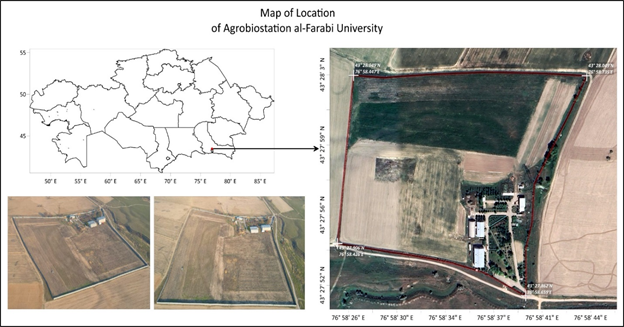
Main tasks
* Ensuring industrial practice of students.
* Conducting laboratory work with students, implementation of diploma and thesis work of Bachelor's and master's students, PhD doctoral students in the areas of scientific projects.
* Study of anatomical and morphological genetic conditions with diseases of the crop composition of garden crops in laboratory conditions.
* Provision of grain forage crops and vegetable species for the purpose of feeding animals used by the University for laboratory purposes.
* Holding a fair on the territory of the University.
* Providing laboratory and practical work to each faculty of our university.
Work carried out in the training agricultural laboratory:
* Scientists of the Faculty of biology and biotechnology are testing perennial wheat, hemp and breeding crops.
* Together with the Faculty of chemistry, medicinal plants are being grown.
* Together with the Faculty of mechanics and mathematics, work is underway to study the use of underground heat.
Microclonal plant propagation is carried out in the training agribusiness laboratory.
Microclonal plant propagation obtaining a large amount of planting material for Fruit, Berry, vegetable and other agricultural crops in a short time; training specialists in modern biotechnological methods of obtaining source material, professional diagnosis of pathogens of agricultural crops; conducting scientific research using modern achievements of Biotechnology, Plant Genetics and physiology.
The aim is to create collections, heal and reproduce in vitro, and study, preserve and restore plant biodiversity.
Responsibilities:
- Training of specialists in the field of Biotechnology, selection, molecular biology.
- Conducting scientific research on bioengineering, plant selection, conservation of Bioresources with the involvement of foreign experts.
Services
-Diagnosis of viral diseases of vegetable and fruit crops.
-Improvement of planting material of vegetable and fruit crops.
-Reproduction of planting material of vegetable and fruit crops in vitro conditions.
-Development of Health and reproduction systems for valuable varieties of any vegetable and fruit crops.
- Cryosave plant collections.
- Restoration of collections of plants that have lost their germination.
Pilot projects are being implemented on the territory of the training agricultural laboratory together with foreign scientists.
On the territory of the agro-industrial complex, work is underway to develop effective systems and components for processing crops, as well as wind, water, solar and biogas plants;
In particular:
Together with the University of Eberswalde of the Republic of Germany, a metrological weather station has been installed on the territory of the training agrobiooster on pilot projects. Environmental analysis and monitoring were carried out.

Drip irrigation technology is being implemented at the educational agrobio laboratory.
Work is underway to increase the productivity of intensive fruit orchards using the Knip-Baum method for fast-growing, stress-resistant seedlings, Tray and Plug technology, and drip irrigation in accordance with European standards.

The ongoing partnership work of the educational agrobio laboratory.
• In collaboration with the Kazakh National Agrarian Research University, work is underway to develop effective systems and components for crop production technologies, as well as wind, water, solar, and biogas installations.
• Department of Ecology and Biology at Zhetysu State University: Negotiations were held regarding student internships.
• Agricultural institutes and LLPs:
• Kazakh Research Institute of Agriculture and Crop Production
• Kazakh Research Institute of Potato and Vegetable Farming
• Research Institute of Plant Protection and Quarantine
• Kamkorlyk LLP
• Baiserke Agro Research Institute LLP
Kazakh National Agrarian Research University. Work is underway to develop effective systems and components for crop production technologies, as well as wind, water, solar and biogas plants;
Several varieties of agricultural crops were tested;
- Technology of processing and storage of agricultural products is being developed;
In the educational and experimental farm of agrobiostantsya, a demonstration plot of fruit and berry crops was built. development of fruit growing, and in order to apply new varieties and rootstocks, the direction of new technologies with production systems.
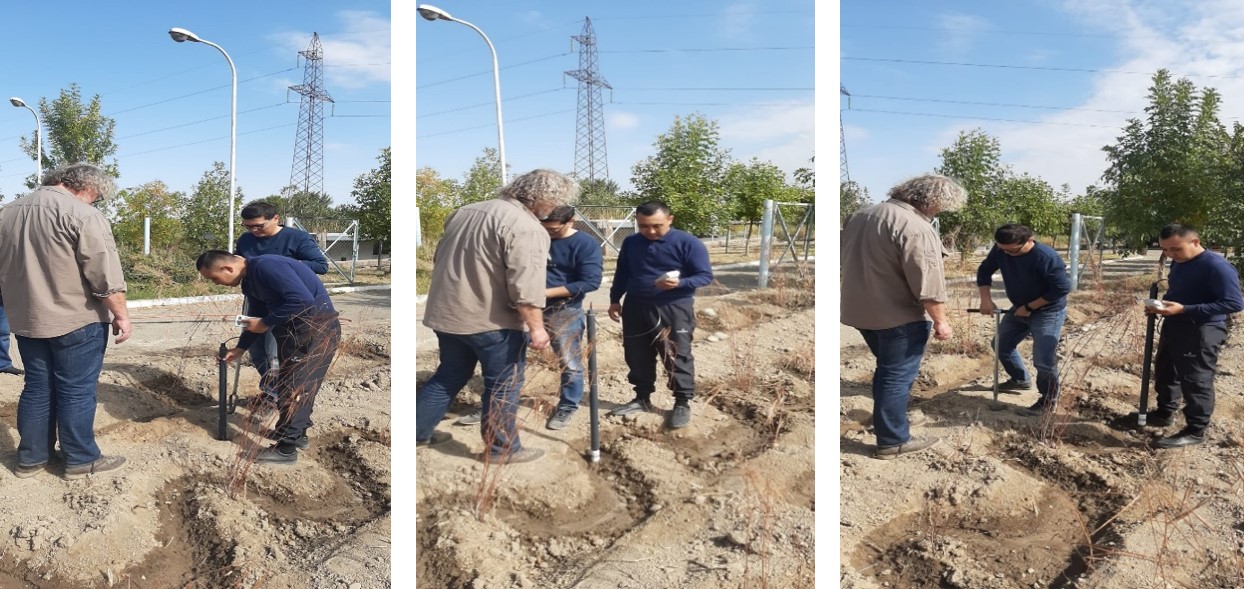
Joint scientific work with Kamkor LLC
In order to conduct research together with the limited liability company "Kamkor" located in the Zharkent region of Zhetysu region, perennial wheat was planted on an area of 7 hectares. Wheat variety: "Baitak".

Together with the Educational and Scientific Production Center "Baiserke Agro," located in the Almaty region, a new variety called "Desert" was planted.
A new variety of wheat, called "Desert," was developed through individual selection from a hybrid population. The new "Desert" variety has rich botanical diversity and belongs to the hybrid species Gostianum (Hostianum).
The "Desert" variety boasts remarkable characteristics: it has 8-12 cm long cylindrical spikes, densely structured, with 14-18 spiny awns reaching up to 10 cm. The grain is glassy, semi-long, large, red-colored, and smooth at the base, with a central groove. The economic value of this variety is evident in its high yield. The weight of 1000 grains is 40.8-49.0 g, with a volume of 757-820 g/L, and the number of grains in the main spike reaches 45.5-60.5. Most importantly, the "Desert" variety is resistant to winter cold, summer heat, drought, and diseases. It is recommended for cultivation on irrigated lands and with fertilizer use. When ripe, the grain does not scatter and is easily threshed. The yield of "Desert" is 25.5-40.5 c/ha.

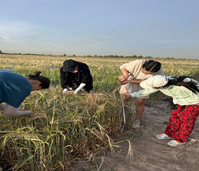
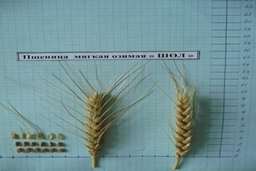
A new wheat variety called "Baitak" was planted together with the Educational and Scientific Production Center "Baiserke Agro," located in the Almaty region.
Together with "Baiserke Agro," a new wheat variety called "Baitak" was planted to increase its use for agricultural purposes. Minister of Agriculture of the Republic of Kazakhstan. Saparov Aidarbek Seipilovich and the Akim of Almaty region Marat Yeleusizovich Sultangaziev visited and expressed support for several projects.
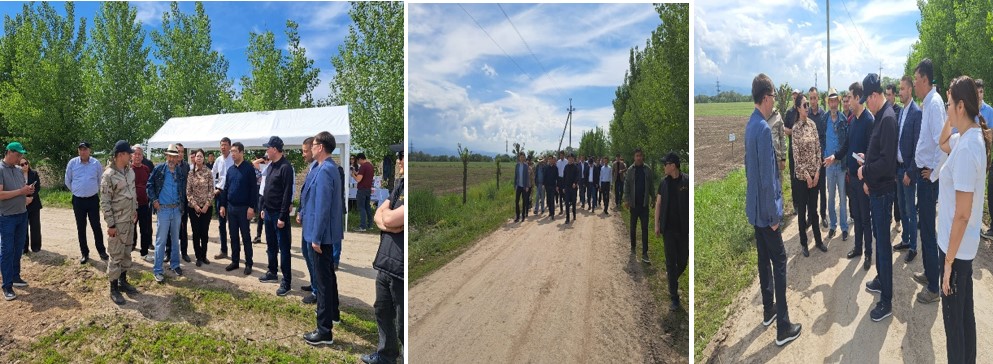
In 2024, 80 second year biology students from the Faculty of Biology and Biotechnology and 30 second-year ecology students from the Faculty of Geography completed their industrial practice at the educational agrobio laboratory.
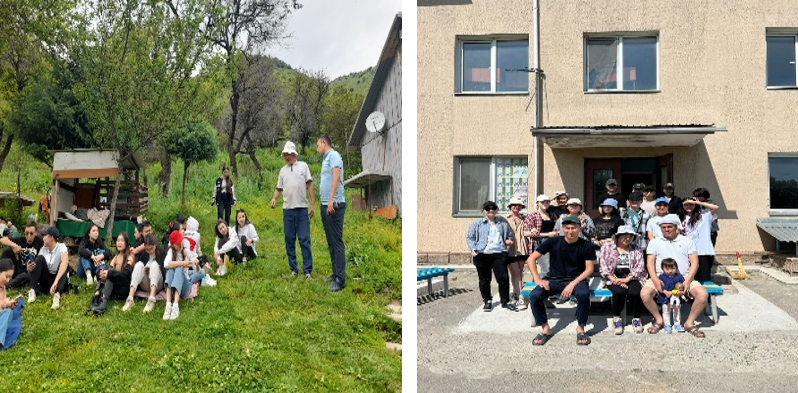
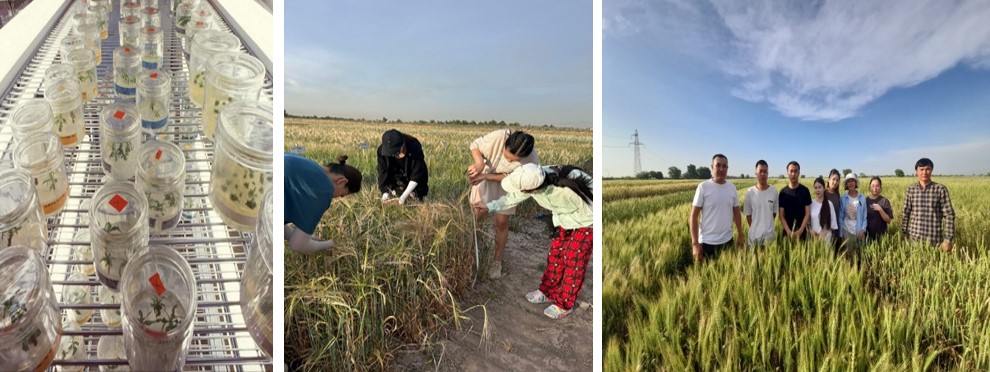
Every year, the products of the educational agrobio laboratory are presented on the university grounds and at the city fair.
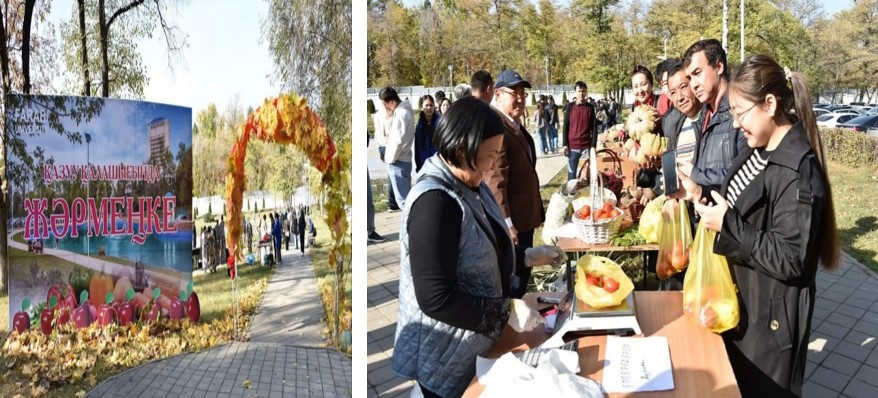
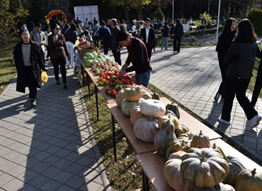
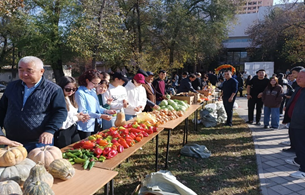
In the educational agrobio laboratory, domestic and international research projects and programs are being implemented, as shown below.
• Project title: Production and implementation of a new bifunctional plant growth stimulator with a fungicidal effect – "NANOQUQIRT". Lead: Mukhambetkali Myrzabaevich Burkitbayev.
• The name of the priority economic sector for which the project is submitted: Manufacturing industry. OKVED code 20.20 - Production of pesticides and other agrochemical products. Lead: Mukhambetkali Myrzabaevich BURKITBAYEV
A delegation arrived at the educational agrobio laboratory in collaboration with Shandong University of China to work on implementing innovative projects for the development of artificial intelligence.
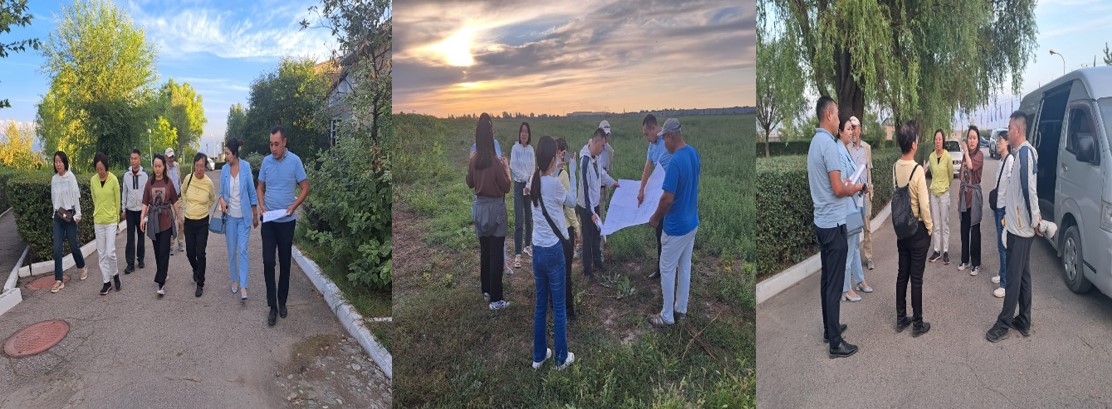
Goals and plans for 2025 to improve the efficiency of the educational agrobio laboratory.
